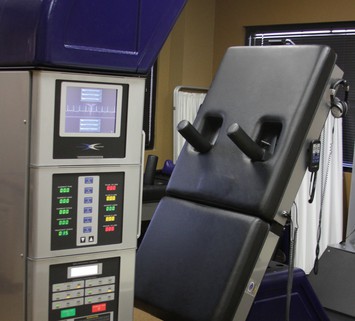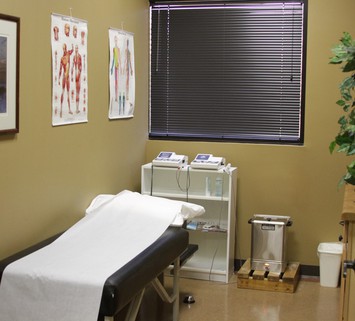For patients considering spinal surgery as an option for addressing back pain, the decision to finally move forward with an operation can be daunting. For many, there are multiple questions regarding the chances of success and the risk factors associated with a surgical approach. Older patients may be wondering if there is an age limit for spinal surgery. This article will answer that question and provide more information on spine surgery as a whole.
When is Spinal Surgery Necessary?
Spine surgery is often used to treat chronic pain that exists as the result of a spinal injury or spinal condition that cannot be cured through nonsurgical means. Conditions such as the overgrowth of the bones in the spinal column, spinal tumors, fractures and breaks, and spinal deformities like degenerative disc disorder may require surgery.
To evaluate if your specific spinal condition might require surgery, your doctor may ask you to undergo MRI screenings, CT scans, or other tests for evaluation and diagnosis. After an examination is performed and a diagnosis is rendered, your surgeon will determine the best approach for addressing your pain and discuss your options with you.
How Does Spine Surgery Work?
How a specific spine surgery will address your back pain varies from surgery to surgery. Back surgeries can be used to alleviate pain, add stability, correct an abnormality, mend a break, increase flexibility, and more.
Sometimes surgeries will be performed to insert implants in the forms of cages, rods, screws, hooks, and plates. Depending on the nature of your condition, implants can help to create a means of fusing two vertebrae for increased stability or correct the shape of the spine, giving strength.
Due to advances in disc decompression surgery techniques, minimally invasive surgical approaches using endoscopes and microscopes now allow for smaller incisions and shorter recovery times.
When you are undergoing a specific spine surgery, your surgeon will break down and explain the surgery in detail so you can understand each step of the process completely.
Is Spinal Surgery a High-Risk Surgery?
Because this surgery occurs near the spine, there is an increased possibility of injury to the spinal cord or individual nerves in the spinal column. This, along with other possible complications, is what makes the surgery high-risk.
The possible complications of spinal surgery, in combination with the use of anesthesia, include:
- Infection
- Blood Clots
- Dural Tear
- Leakage of Spinal Fluid
- Facial Sores or Loss of Vision
- Nerve Injury or Paralysis
- Death
For these reasons, your doctor may recommend attempting to address your pain with conservative care methods before opting for surgical intervention. Some examples of nonsurgical care options for back pain can include:
- Steroid Injections
- Pain Medications
- Physical Therapy
- Weight and Stress Management
- Heat and Ice Therapy
- Massage
If all of these methods fail to provide necessary pain relief for six months or more, your physician may recommend surgery.
What is the Success Rate of Spinal Surgery?
While there are many factors that go into the results of an individual type of spine surgery, success rates for spine surgery are largely positive, making them a viable option for alleviating back pain.
Your surgeon will discuss your specific surgery and its success rates and complications with you before you decide to move forward with the operation.
Is There an Age Limit for Spinal Surgery?
No, there is no hard and fast age limit for spinal surgery. Because both elderly patients and young people can be afflicted with spinal issues, age is not the primary deciding factor in whether or not spinal surgery is an option.
However, age may play a part in your surgeon’s final decision on whether or not you are a good candidate for surgery. Other factors that go into this decision include:
Overall health
Obesity, advanced age, and an unhealthy lifestyle (smoking, excess drinking, drug use), as well as the physical consequences associated with these conditions, may result in someone not being healthy enough for surgery
Comorbidities
Pre-existing conditions, such as high blood pressure, diabetes, or chronic obstructive pulmonary disease (COPD), may make surgery more difficult. Your doctor may ask you to meet certain health criteria before approving you for surgery.
Cost-Benefit-Ratio
After examining your overall health and comorbidities, your doctor will determine if the possible benefits of having the surgery performed outweigh the potential risks you may be exposed to. If the potential risks are too severe, your surgeon may not approve you for surgery.
Success of Coservative Care
If your symptoms have improved with previous conservative care treatments, your surgeon may not approve you for surgery in favor of continued nonsurgical care.
Patient Wishes
When considering whether or not to have surgery, your opinion matters. Your surgeon will take your desire to have the surgery into consideration when considering your approval.
Getting Help From Texas Spine Center
For patients seeking more information, a second opinion, and a board-certified neurosurgeon they can trust, Texas Spine Center is the solution. Dr. Siddiqi and his team of spine care professionals specialize in minimally invasive surgical techniques. Schedule an appointment on our website to explore your pain relief options with the experts!



